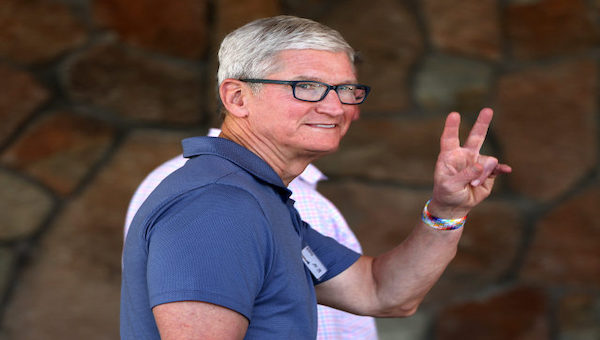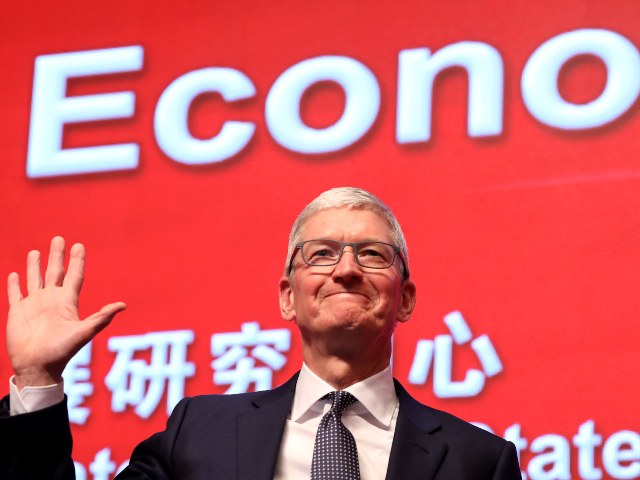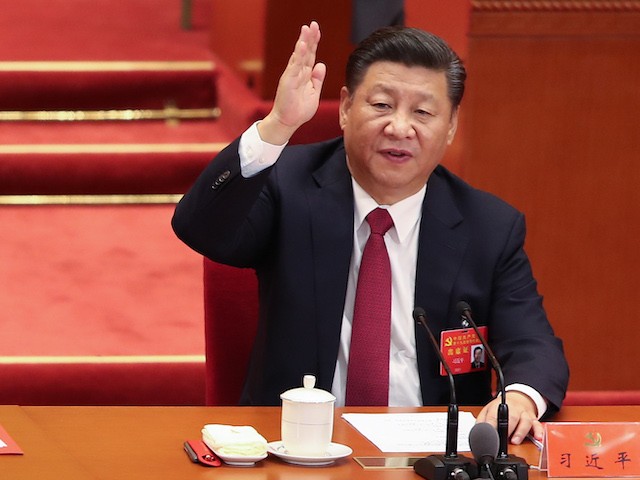
DEAL WITH THE DEVIL: APPLE SIGNED $275 BILLION CONTRACT WITH CHINA TO AVOID CRACKDOWN
BY: LUCAS NOLANSITE: BREITBART
TRENDING
Activism
Belief
Big Pharma
Conspiracy
Cult
Culture
Economy
Education
Entertainment
Environment
Global
Government
Health
Hi Tech
Politics
Prophecy
Science
Social Climate
Universe
War
Apple CEO Tim Cook reportedly signed a $275 billion deal with China in 2016 in order to prevent a crackdown by the communist government on its vast business in the country. The Masters of the Universe committed to “grow together with Chinese enterprises to achieve mutual benefits and a win-win situation.”
The Information reports that Apple CEO Tim Cook signed a deal with China in 2016 worth $275 billion to prevent restrictions on its business in the country. As part of the deal, Apple agreed to help Chinese firms build “the most advanced manufacturing technologies” and invest “many billions of dollars” in the country. The five-year agreement was designed to placate Chinese government officials who felt that Apple was failing to invest enough in the Chinese economy.

Tim Cook, Apple CEO, in China (NG HAN GUAN/AFP via Getty Images)

Chinese President Xi Jinping vote at the closing of the 19th Communist Party Congress at the Great Hall of the People on October 24, 2017 in Beijing, China. (Lintao Zhang/Getty Images)
In 2016, Cook lobbied Chinese government officials over regulations that could threaten Apple services including the App Store, Apple Pay, and iCloud. Cook signed the deal with China during one of several visits to China that year after Chinese regulators’ actions tanked iPhone sales in the country.
A memo of understanding was created by Apple’s government affairs team in China alongside China’s National Development and Reform Commission to improve the company’s relations with Chinese leaders. Apple executives also made it a priority to meet with top Chinese government officials after the 2016 regulations affected iTunes books and movies.
The deal made Apple commit to helping Chinese manufacturers build the most advanced manufacturing technologies” and train workers. It also included promises to use Chinese suppliers for more parts for Apple devices, develop deals with Chinese software firms, work with Chinese universities, and invest “many of billions of dollars more,” than Apple was already investing in China.
Apple further committed to “grow together with Chinese enterprises to achieve mutual benefits and a win-win situation,” develop China’s IT industries, promote education in the fields of science, technology, education, and environmental protection, and in exchange China agreed to provide “necessary support and assistance.”
Apple has long done its best to placate China, it was reported in May of 2021 that Apple made a number of concessions to the Chinese government in order to continue operations in the country. The New York Times wrote:
Inside, Apple was preparing to store the personal data of its Chinese customers on computer servers run by a state-owned Chinese firm.Tim Cook, Apple’s chief executive, has said the data is safe. But at the data center in Guiyang, which Apple hoped would be completed by next month, and another in the Inner Mongolia region, Apple has largely ceded control to the Chinese government.
Chinese state employees physically manage the computers. Apple abandoned the encryption technology it used elsewhere after China would not allow it. And the digital keys that unlock information on those computers are stored in the data centers they’re meant to secure.
The Times also alleges that while U.S. regulations prohibit Apple from handing data over to Chinese authorities, storing user data on local Chinese storage creates a loophole allowing it. A Chinese firm named Guizhou-Cloud Big Data (GCBD), is actually the legal owner of Apple iCloud customer data in China. Due to this, Chinese authorities can demand access to data from GCBD rather than Apple.
Since 2017, around 55,000 apps have been removed from the Apple App Store in China, according to data provided by Sensor Tower. Some of the apps included foreign news outlets, encrypted messaging apps, gay dating services, and VPNs allowing users to bypass China’s strict internet restrictions.
Click 3 Dots Below to View Complete Sidebar


